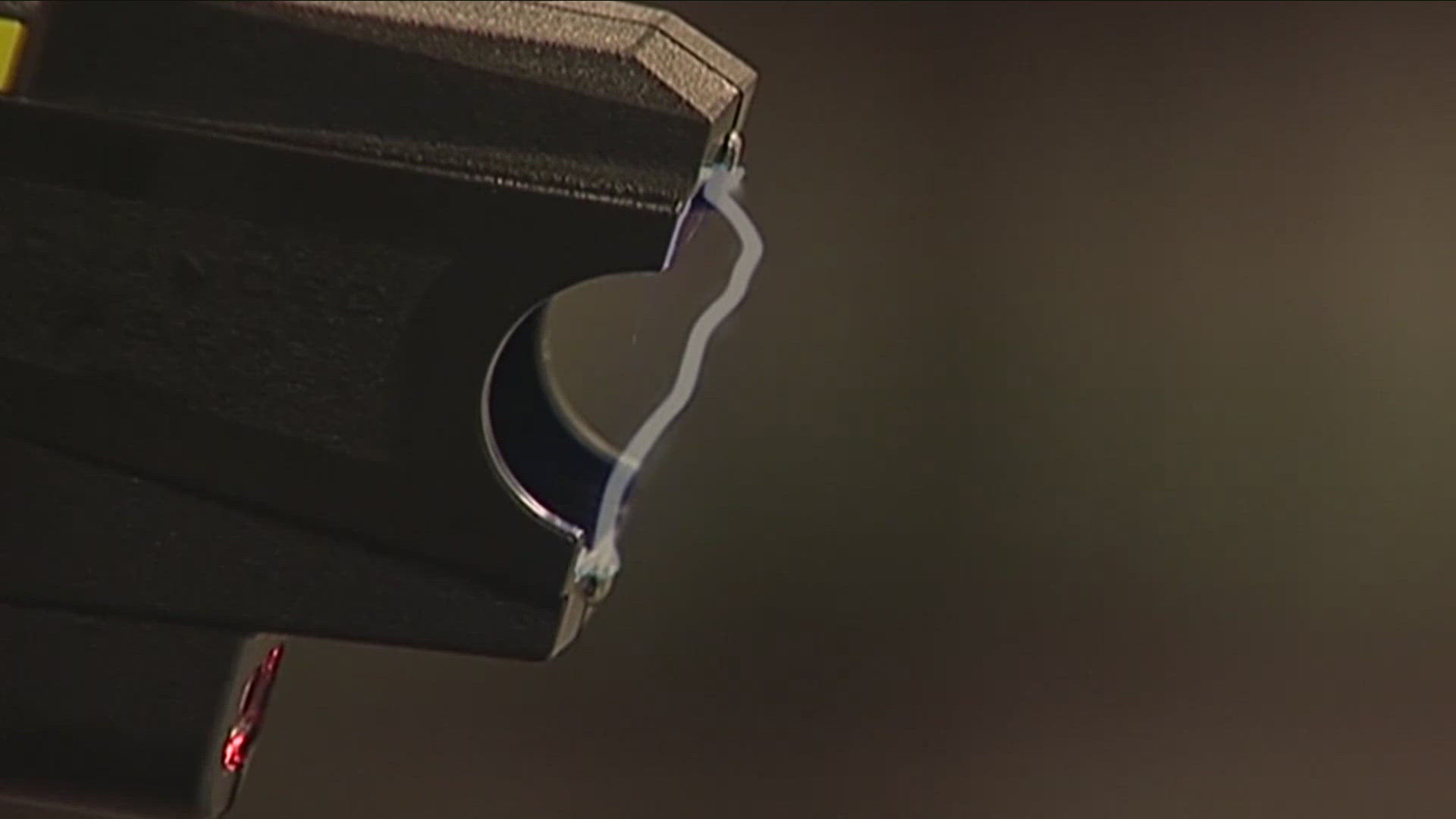BUFFALO, N.Y. — The Buffalo Police Department is looking to drastically increase the number of tasers, cameras, and their overall surveillance capability by proposing an amended contract with Axon.
Axon is the company that manufactures Tasers and body cameras used by Buffalo Police.
Right now the department only has 125 tasers, meaning officers often have to share their taser with a colleague during a shift change.
The amended contract, according to Commissioner Joseph Gramaglia, would allow for every officer in the department to be issued a taser.
Also proposed in the amended contract:
- Front and reach-facing vehicle cameras with license plate reader technology.
- A tethered drone for long-term surveillance operations
- An automated survey tool that ties into the computer-aided dispatch system.
- Access to Axon's 'Real-time crime center platform'
While 'real-time crime center' sounds like industry-speak, Commissioner Gramaglia says it will play a significant role in preventing and solving crimes.
"This is game-changing technology," Commissioner Gramaglia said. "There's a feature in there that will actually allow us to gain access to commercial cameras, private businesses, a gas station, a grocery store, a liquor store, corner store, you name it, but very carefully and very responsibly."
According to Gramaglia, a business would have to opt into the program with BPD and buy a $200 piece of hardware that would allow the department real-time, 24/7 access to its camera system.
"They will dictate what cameras out of their system that they will give us access to," Gramaglia said. "They've got internal and external cameras, and they don't want to see in the internal, then they don't give us access to the internal."
A business owner who chooses to opt-in does have the ability to set up a geofence provision in their agreement with the department. That would mean the department can only access a camera if a crime happens within a certain number of feet of that business.
A commercial business owner also can audit the department and find out when they access their camera, for a cost.
"They can purchase for $150 annually, and that actually gives them a subscription in this real-time crime center platform," Gramaglia said. "Which also allows them to have an audit of any time their system was accessed."
Gramaglia, however, says that the department will have its own guidelines for accessing cameras, and limit the number of people who can view the cameras in real-time.
"It's all permission-based internally within the department to those that need to have it," Gramaglia said. "It is all audit trailed, we have policies in place now, with our current systems, we have audit trails with everything that we do."
However, there are still concerns over how much surveillance a police department should have amongst privacy advocates.
Beryl Lipton, a senior investigative researcher at the Electronic Frontier Foundation, says councilmembers need to ensure oversight is guaranteed before an amended contract is voted on.
"I think it's really important for there to be very clear audit mechanisms and clear policies around when law enforcement can be accessing these cameras, or really accessing a lot of the different surveillance tools that are going to be part of this real-time crime center," Lipton said.
Lipton says that her research shows that police departments are collecting a massive amount of data with these tools.
"If this information is being now captured and stored, it's totally possible that later on, it can be accessed by law enforcement or possibly by another entity," Lipton said. "These are, like any other sort of mass storage entity, vulnerable to bad actors."
According to Lipton, it's a positive that BPD is looking to amend the contract through the Common Council, so there is a trail of what is being requested. But she says that lawmakers need to ensure there is a framework set for long-term oversight.
"I think lawmakers and policymakers really need to set up a structure for accountability in the application of the surveillance tools so ways that they are able to audit how the surveillance tools are being used," Lipton said.
The Common Council is expected to vote on the amended contract on September 17.

